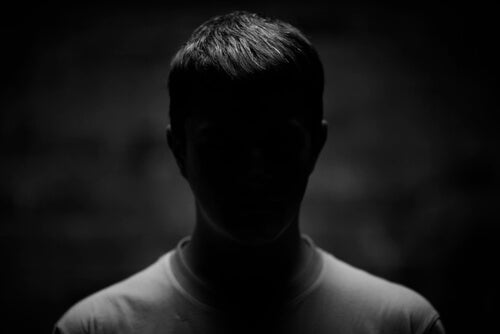(Exploring Your Mind) Robert Hare is one of the greatest experts in psychopathic personality and criminal behavior. His psychopathy checklist, also known as PCL-R, is the most significant resource not only to detect a psychopath but also to assess their violent inclination.
Related If Joker Met Jordan Peterson — How to Create a Psychopath Killer
by Staff Writer, January 9th, 2020
The psychopathy checklist or PCL-R is an international reference instrument to identify the presence of psychopathy in an individual. Above all, researchers use it within prison inmates, but it’s also useful in the clinical and forensic field. This is a reliable and valid test capable of providing interesting information about affective and interpersonal aspects and behavior problems, among other things.
This is perhaps one of the most interesting clinical resources due to the person who designed it. Its creator, Robert Hare, is a doctor of psychology and professor. As of now, he still stands as a reference in the field of criminal studies. His works in the area of psychopathology and psychophysiology are outstanding.
When creating this instrument, he attempted to design a resource capable of offering valuable information about those convicted of committing violent acts. Now, it didn’t take long for it to become successful due to two things. First of all, it was very simple and easy to administer. There are 20 items (questions) where the evaluator can compare the individual’s profile with that of a prototypical psychopath.
The second reason why Robert Hare’s psychopathy test was so accepted is because it could be used beyond the criminal population.
Thus, in a clinical setting, people began to see it as a simple and valid tool to evaluate possible violent tendencies, as well as sexual aggressiveness in men, women, and adolescents. In other words, it was able to estimate (with a reasonable error threshold) how likely it was for a certain person to commit a criminal act.
Let’s expand on this some more.

The psychopathy checklist: Purpose, application, and reliability
One of the best books on psychopathic personality is Without Conscience: The Disturbing World of the Psychopaths Among Us, written by Robert Hare and published in 2003. In this book, the author describes his extensive experience in this field. The story of this book begins since he was a psychology student. Back then, he’d carry out his practices in prisons, which made him very interested in the criminal world.
Hare states in the pages of this book that psychopaths (unlike sociopaths) aren’t made but born. Maybe this is why he found it necessary to develop an instrument to evaluate those underlying factors that, according to him, are present in approximately 1% of the population. The psychopathy checklist, therefore, came as a result of his practical experience, studies, interviews, and forensic cases.
“Psychopaths are social predators, and like all predators, they are looking for feeding grounds. Wherever you get power, prestige and money, you’ll find them.”
-Robert D. Hare-
What does the psychopathy checklist evaluate?
The psychopathy checklist or the PCL-R is used to assess the presence or absence of psychopathic traits in an individual for clinical, legal, or research purposes. This test was created in the 1990s and it was initially effective in assessing a person’s psychopathic tendencies. However, little by little, Hare and his team of researchers decided to take a closer look.
The reason for this was due to a recurring fact: the majority of psychopaths repeat their violent acts. Therefore, the creation of the current PCL-R came to be so that researchers could to see the potential risk of a convicted subject to relapse and repeat their past actions.

How experts apply this instrument
There are 20 items in the psychopathy checklist. In fact, it’s an evaluation scale. In other words, it’s applied through a semi-structured interview where the professional must assess between 0 and 2 points each question asked. On other hand, we must note that the result of this evaluation doesn’t only start with the interview. There are other important factors the researcher should consider such as the person’s criminal record, reports from experts, work and family history, trial records, and peer assessments, among others.
Let’s see the dimensions assessed in the psychopathy checklist:
- Loquacity / Superficial charm.
- Egocentrism / Great feeling of self-worth.
- Need for stimulation / Tendency to boredom.
- Pathological lying.
- Cunning / Manipulative.
- Lack of remorse and guilt.
- Emotionally shallow.
- Callous / Lack of empathy.
- Parasitic lifestyle.
- Lack of behavioral control.
- Promiscuous sexual behavior.
- Early behavioral problems.
- Lack of realistic long-term goals.
- Impulsiveness.
- Irresponsibility.
- Inability to accept responsibility for own actions.
- Several brief marital relations.
- Juvenile delinquency.
- Revocation of conditional release.
- Criminal versatility.
Book The Hidden Life of Trees: What They Feel, How They Communicate―Discoveries from A Secret World
According to interviews and the analysis of several reports, researchers have come to the conclusion that completing this test takes about an hour and a half. The results obtained will define if there are psychopathic tendencies in the individual or not. In addition to that, they determine their significance and the possibility of committing violent acts (or of committing them again if they already did so).

Reliability and validity of the psychopathy checklist
Robert Hare points out that, with this test, it’s also possible to see the kind of psychopath we’re facing. It’s important to point out that not all psychopaths kill or commit violent acts. Many of them are defined only by a manipulative and narcissistic personality, which hinders both coexistence and identification.
On the other hand, if we ask ourselves now about the reliability of the psychopathy checklist, we must mention the analyzes carried out in the last years. The data always shows high consistency, validity, and reliability. Let’s mention, for example, the study conducted at Carleton University in Ottawa, Canada. In this study, Dr. Kristopher J. Brazil demonstrated, once again, its usefulness in the forensic, clinical, and research fields.
Without a doubt, this is a very interesting instrument. Robert Hare, meanwhile, is 85 years old today and is still one of the great experts in the field of psychopathy and criminal behavior.
“Psychopaths view any social exchange as a ‘feeding opportunity’, a contest or a test of wills in which there can only be one winner. Their motives are to manipulate and take, ruthlessly and without remorse.”
-Robert D. Hare-
Stillness in the Storm Editor: Why did we post this?
Psychology is the study of the nature of mind. Philosophy is the use of that mind in life. Both are critically important to gain an understanding of as they are aspects of the self. All you do and experience will pass through these gateways of being. The preceding information provides an overview of this self-knowledge, offering points to consider that people often don’t take the time to contemplate. With the choice to gain self-awareness, one can begin to see how their being works. With the wisdom of self-awareness, one has the tools to master their being and life in general, bringing order to chaos through navigating the challenges with the capacity for right action.
– Justin
Not sure how to make sense of this? Want to learn how to discern like a pro? Read this essential guide to discernment, analysis of claims, and understanding the truth in a world of deception: 4 Key Steps of Discernment – Advanced Truth-Seeking Tools.
Stillness in the Storm Editor’s note: Did you find a spelling error or grammatical mistake? Send an email to [email protected], with the error and suggested correction, along with the headline and url. Do you think this article needs an update? Or do you just have some feedback? Send us an email at [email protected]. Thank you for reading.
Source:
https://exploringyourmind.com/the-psychopathy-checklist-by-robert-hare/

Good article though I would have to disagree with Mr. Hare in that psychopaths are born… the ONLY reason I could think that this may be true would be from a spiritual karmic point of view or even a conscious choice in the mapping our of our life before we incarnate; since I know that we are not our behaviors. I have to ask if Mr. Hare has actually worked with HIS OWN psychology because from my experience, until we do, we don’t have a complete understanding of it and how trauma truly affects our psyche. I have been in relationship with a narcissist and from the questions given here, he would fit into this “box” of psychopath. However, from BEING with this person and knowing about what he went through as a child, I have an understanding of how his behaviors got created, where the “perfectionism” comes from and why he is so afraid to allow himself to really feel empathy for another because it was so painful to do so when he was a child. I don’t think these people are incapable of empathy, I think they have unconsciously SHUT IT OFF as a way of protecting themselves from feeling so deeply. While there are many paths to working with our selves, I would recommend you read “Self Therapy” by Jay Earley PhD to get another perspective on our ego and how to work WITH it and not against it. I hope I have given YOU, Justin, a few more points to consider… even the worst psychopath is still a divine being and worthy of better consideration than just, “they’re born that way”! If we want people to change, we have to change how we think about them. Also, it’s not just about putting them in a box with a label as identification. We are a COLLECTIVE mind and when you think of psychology in THOSE terms, you realize that while we may have gone through different traumas that have created a different pattern of psychosis, we ALL have access to ALL the archetypes and they could be employed at any moment, given the current circumstance. AND, in one lifetime or another, WE HAVE ALL BEEN THE PSYCHOPATH as a way of experiencing greater separation.